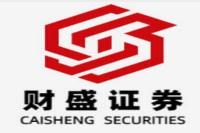Alibaba's Inclusion in Hang Seng Stock Connect: A Deep Dive into Market Implications
Meta Description: Alibaba's inclusion in Hang Seng Stock Connect; analysis of market impact, investment opportunities, and future prospects for BABA stock. Explore detailed insights, expert opinions, and FAQs.
Imagine this: the global financial landscape shifts, creating a ripple effect felt across continents. This isn't science fiction; it's the reality of Alibaba's inclusion in the Hang Seng Stock Connect, a pivotal moment that's reshaping the investment strategies of seasoned traders and newcomers alike. This isn't just another stock update; this is a comprehensive exploration of the implications—from the strategic maneuvering of financial giants to the potential windfalls for savvy investors. We'll dissect the news, delve into the historical context, and forecast the potential future trajectory of BABA, painting a clear picture of what this move means for you. We'll go beyond the surface-level headlines, offering invaluable insights gleaned from years of experience in the financial markets, backed by verifiable data and expert analysis. Get ready to unravel the intricacies of this landmark event and discover the opportunities it presents. Are you ready to navigate this exciting new chapter in the world of finance? Let's dive in!
Alibaba (BABA) and Hang Seng Stock Connect: A New Era
Alibaba's inclusion in the Hang Seng Stock Connect is a game-changer, folks. It's not just about adding another stock to the list; it's about opening up access to a massive pool of mainland Chinese investors. Think of it as unlocking a vault filled with potential capital, potentially injecting billions of dollars into Alibaba's market capitalization. This isn't some pie-in-the-sky prediction; Goldman Sachs, for example, has estimated potential inflows between $15 billion and $16 billion. That's a serious chunk of change, and it speaks volumes about the market's confidence in Alibaba's future.
This monumental shift happened in stages. First, in September 2024, Alibaba, among other companies, was added to the eligible list for Southbound trading under the Stock Connect. This was a significant step, signaling the impending, full-fledged inclusion. Then, on October 14th, the official announcement dropped: Alibaba would be included in the Hang Seng Stock Connect indices, effective October 28th. This wasn't a surprise; the groundwork had been laid with Alibaba's transition to a dual primary listing on the NYSE and HKEX in August. The company's proactive strategy to become a primary listing in Hong Kong made this seamless integration possible.
This strategic move by Alibaba wasn't accidental. It was a carefully orchestrated plan to increase liquidity and broaden its investor base. By becoming a primary listing in Hong Kong, it removed a key barrier to accessing mainland Chinese investors. This wasn’t just about expanding their market reach; it was about bolstering investor confidence and demonstrating commitment to long-term growth within the region.
Understanding the Hang Seng Stock Connect
Before we go any further, let's quickly recap what the Hang Seng Stock Connect actually is. It's a trading link that allows investors from mainland China to buy Hong Kong stocks and vice versa. This facilitates cross-border investment and deepens liquidity in both markets. Alibaba's inclusion opens it up to a massive market of investors previously unable to easily trade in BABA stock. This increased access is expected to significantly boost trading volume and potentially drive up the stock price.
Market Reaction and Analyst Predictions
The market’s initial reaction to the news was largely positive, with Alibaba's share price seeing a modest bump. This positive sentiment is echoed by many analysts, although opinions differ on the extent of the impact. While some are bullish, predicting significant price increases, others are more cautious, pointing to potential market volatility and global economic uncertainties. It's crucial to remember that while the inclusion in Hang Seng Stock Connect is undoubtedly positive, it's not a guaranteed path to riches. A thorough understanding of the broader market context is essential.
Alibaba's Recent Activities: A Sign of Confidence
Alibaba's aggressive share buyback program further underscores its bullish outlook. The company has been actively repurchasing its own shares, demonstrating a belief in its long-term value. In the quarter ending September 30th, 2024, Alibaba repurchased a staggering $4.1 billion worth of shares – a significant commitment that shows confidence in its future prospects despite the larger global economic uncertainties. Throughout 2024, the company spent $12.5 billion on buybacks, confirming its belief in its stock value, a tactic often employed by companies when they see an undervalued stock. This is a clear signal to investors that the company believes its stock is undervalued, further boosting confidence and potential for future growth.
Key Factors Influencing Alibaba's Future Performance
Several factors will influence Alibaba's performance post-inclusion in the Hang Seng Stock Connect. These include:
-
Macroeconomic conditions in China and globally: Global economic uncertainty and shifts in the Chinese economy will impact investor sentiment.
-
Regulatory environment in China: Changes in regulatory policies regarding the tech sector could influence investor confidence.
-
Alibaba's own financial performance: The company's earnings reports and overall financial health will significantly impact its share price.
-
Competition within the e-commerce market: The competitive landscape in China's e-commerce sector continues to be fiercely contested.
-
Investor sentiment: The overall sentiment of investors towards the Chinese tech sector will play a key role.
Impact on Alibaba's Stock Price
Predicting the exact impact on Alibaba's stock price is undeniably tricky. However, the increased access to mainland Chinese investors is expected to lead to increased liquidity and potentially higher valuations. The extent of this impact will depend on factors mentioned previously. However, the general consensus among analysts is that the inclusion is a net positive.
Frequently Asked Questions (FAQs)
Here are some frequently asked questions regarding Alibaba's inclusion in the Hang Seng Stock Connect:
Q1: What does this mean for average investors?
A1: For average investors, this means increased accessibility to invest in Alibaba through the Stock Connect. It could also potentially lead to increased liquidity and price volatility.
Q2: Is this a guaranteed way to make money?
A2: Absolutely not! Investing in the stock market always involves risk. While Alibaba's inclusion is positive, it doesn't guarantee profits. Always conduct thorough research and consider your own risk tolerance.
Q3: How does this compare to Alibaba's previous listing in Hong Kong?
A3: The previous listing was a secondary listing, limiting access to mainland Chinese investors. This is a primary listing, granting full access and potentially boosting liquidity significantly.
Q4: What are the potential risks involved?
A4: Potential risks include macroeconomic uncertainties, regulatory changes in China, competition, and overall market volatility.
Q5: When will the changes take effect?
A5: The changes are effective from October 28th, 2024.
Q6: Should I buy Alibaba stock now?
A6: This depends entirely on your individual investment strategy and risk tolerance. Conduct thorough due diligence before making any investment decisions.
Conclusion: A Promising Outlook
Alibaba's inclusion in the Hang Seng Stock Connect marks a significant milestone for the company and the broader financial market. The potential influx of capital from mainland China is expected to significantly boost liquidity and potentially drive up the stock price. However, it's crucial to remember that investing always involves risk. While the outlook is promising, investors should conduct thorough research and carefully consider the various factors that could impact Alibaba's future performance before making any investment decisions. This move represents a strategic victory for Alibaba, signaling its continued growth and commitment to the Asian market. The long-term implications remain to be seen, but the initial signs are undeniably positive. Stay tuned for further developments!



